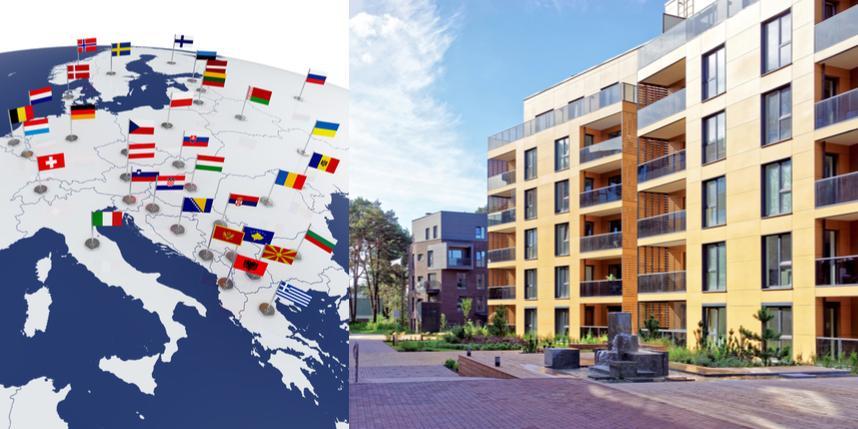Overall Growth Expectation of European Real Estate Market
18 Jul 2018
Brexit Impact on EU Real Estate Market In 2018
Monetary tightening post-Brexit in the UK will reduce low-cost funding opportunities, hurting rental income. In the UK, mortgage approvals and total residential property transactions declined as a deviation in growth can be seen in most areas.
Prices may remain stagnant in London and stabilise in the coming year, as in most overheated global cities, and risk will reduce due to these factors.
In March 2019, the UK will leave the EU, which will have a greater impact on residential properties in the EU. London properties are falling by 2 per cent in 2018 as per PWC reports, although the price of a house in the UK will grow to £285,000 from £221,000 by 2025.
Brexit is influencing housing markets in the UK, especially London, where the property prices, which used to grow at a steady rate of 10 per cent or more per annum in the last decade, are now down to almost 2 per cent or below. In addition, the political changes and enactment of new taxes have led to reverse growth, where property prices are falling.
It provides opportunities for the buyer to get properties at least 15 per cent lesser in rates, mostly in the luxury markets, where the prices have been falling.
S&P market report finds overall, in Europe, property prices are softening though getting influenced by Brexit. However, supply shortages in the Netherlands and Portugal led to price rises, and the same thing will happen in Ireland, which will cause growth in the property market - as per the S&P market report.
The report claims the annual growth in properties in the EU will be more than 3 per cent in countries, e.g. Spain, Belgium and Germany, and less than 3 per cent in France and Switzerland. The growth will be below 1 per cent in Italy, Switzerland and the UK.
EU Markets
Overall, the EU markets will see a rise in price on an average in the range of 1 to 5 per cent in the coming years, and growth can be negative to 5 per cent in most Southern European countries.
The regulatory changes in New Zealand, Australia, and Canada will directly impact property investment, as Chinese investor's demand foreign properties is declining. As a result, property prices will cool down even in China, Norway, and the UK.
Volumes of properties in Germany and Dutch cities will grow, and volumes will contract in Belgium and France. On the other hand, Italy and Portugal will see a rise in property prices.
As per 2019 predictions - Portugal's properties would grow up to 7 per cent, followed by Ireland, Netherlands, Spain, and Germany. In 2020, the growth will be 6 per cent in Portugal and Ireland.
Fitch's report on 22 countries' property markets in 2018, released in the Global Housing and Mortgage Outlook, found that residential properties were higher in Canada, the Netherlands, and Ireland than anticipated.
The study claims the property price in Ireland can grow by 10 per cent in 2018, and EU home prices have bottomed out in Italy after declining. However, in the EU, Greece is the country where prices are still declining.
To learn more about investing in the EU real estate market, click Hamilton International Estates (www.hamiltoninternationalestates.com).
Categorised in: All News












